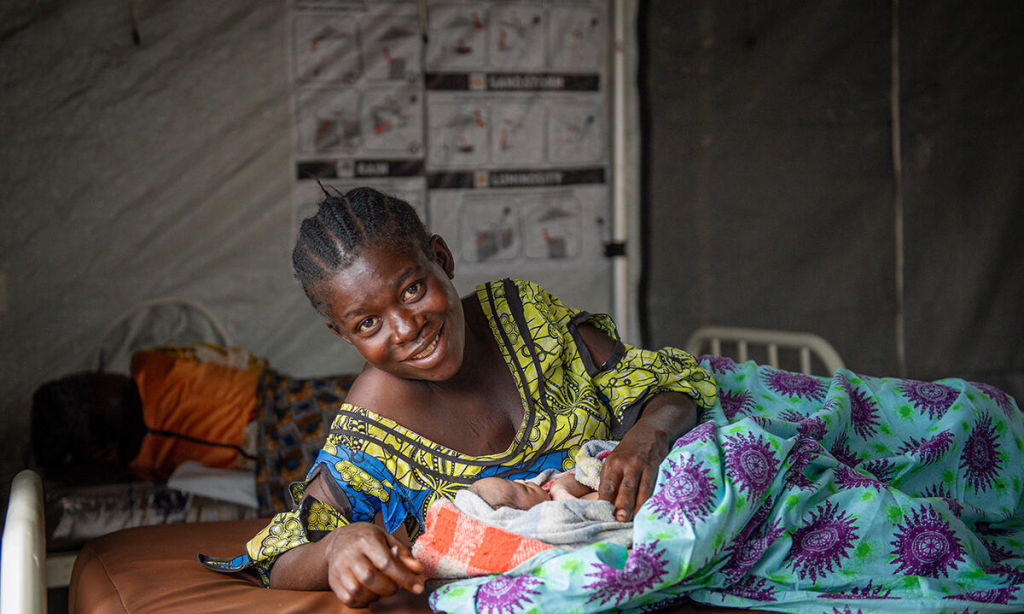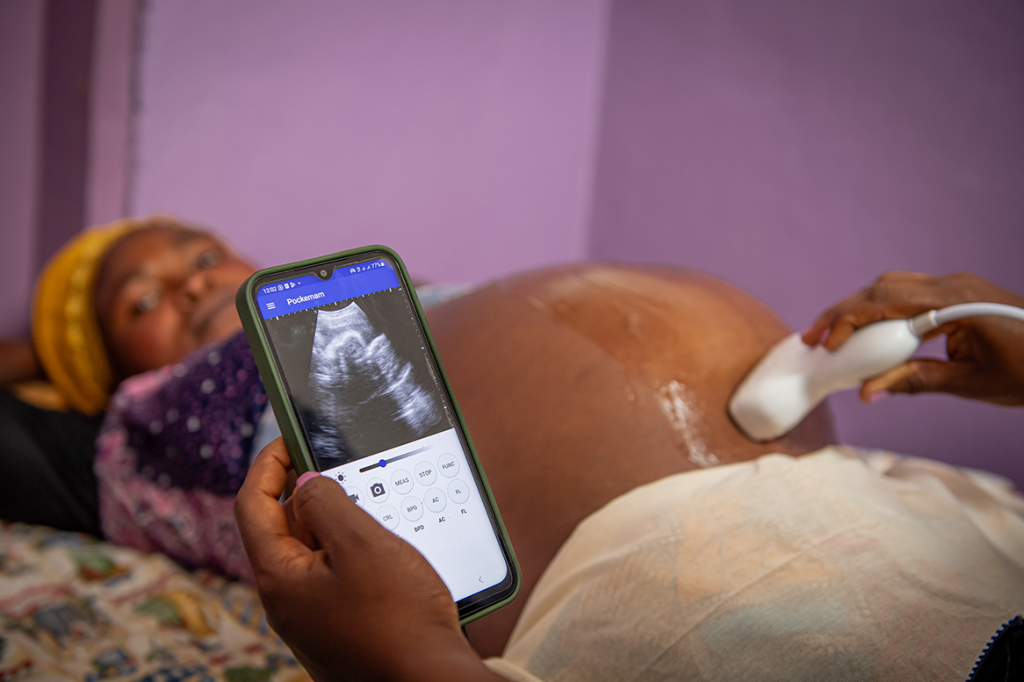First published September 20, 2023, by UNFPA ESARO.

Democratic Republic of the Congo – In the Democratic Republic of the Congo, the health and protection needs of women and girls are soaring.
Conflict between armed groups in the east of the country has worsened significantly, with violence escalating since March 2022. The fighting is continuing to drive mass displacement, exacerbating one of the world’s most complex and protracted crises.
UNFPA is leading efforts to ensure that displaced women and girls can access reproductive health and protection services. This includes increasing mobile health teams and safe spaces for survivors of gender-based violence, distributing supplies and deploying midwives.

Across the provinces of North Kivu, South Kivu and Ituri, 5.5 million people are displaced. An estimated 220,000 are pregnant women.
So far in 2023, more than 31,000 women have delivered safely at more than 24 health facilities supported by UNFPA, and three mobile clinics are supporting many more through pregnancy and childbirth. Ruboneka is one of them. Having fled the conflict, she gave birth safely at a mobile clinic in the Bulengo camp for internally displaced people.

Trained midwives like Sifa Ndeze, who supported Ruboneka, are averting preventable maternal deaths. On average, 15 per cent of pregnant women will experience complications during pregnancy or birth, which can be life-threatening without access to trained staff and facilities providing emergency obstetric care.

At the mobile clinic where Ruboneka gave birth, an average of four deliveries a day are being recorded, and there have been no maternal deaths since it was set up in February 2023.
Midwives provide holistic care in a crisis. In doing so, they are quite literally a lifeline for women and girls. As well as supporting tens of thousands of women and adolescent girls through childbirth each year and providing essential support both before and after birth, their responsibility extends further.
They provide family planning services and often are the first point of contact, and care, for survivors of gender-based violence. They are experts at comforting these women and girls, providing initial support and referring them for the clinical management of rape and psychosocial services.

When 33-year-old Anny* and her teenage daughter were raped at gunpoint in the Bulengo camp, she did not know where to turn at first, or even that help existed.
After attending an information session, she was referred to UNFPA’s mobile clinic, where she was supported by two midwives, Sifa and Philomène. The midwives provided medical care and referred them to a safe space for psychological support.
At the Safe Space, Anny met Antoinette, who has been supporting her ever since.
Reassured by the support she received and the confidentiality with which it was provided, Anny has also brought her daughter to the mobile clinic.
The Safe Space has provided mother and daughter – along with countless other women – with a support network.

Incidences of gender-based violence and sexual exploitation in the DRC are increasing at an alarming rate. In North Kivu, there was a 91 per cent rise in reported GBV cases between 2021 and 2022. In 2023, across North and South Kivu and Ituri, more than 313,000 women and girls will be at risk. Rape is routinely used as a weapon to terrorize and subjugate.
An untold number of women and girls have been left traumatized and exposed to sexually transmitted infections and unwanted pregnancies. Survivors of sexual violence say they largely feel forgotten after decades of what seems like a never-ending war.
This crisis has decimated women and girls’ choices. The challenge to ensure and restore women’s safety and bodily autonomy is immense. UNFPA is striving for the rights of women and girls to be fulfilled, but significant increased investment is required if we are to reach more people in the most vulnerable situations.

There’s an urgent demand for contraception, emergency contraception and post-exposure prophylaxis for HIV.
There are many barriers to accessing these supplies and services, including the fact that many women and girls are fearful to venture outdoors.
UNFPA mobile clinics are taking services to women and provide a welcoming space where women can talk with a trained professional in confidence.
Borah, 32, flex her home with her six children. At the Bulengo camp, she was able to access family planning services.
Safi, 23, and Mohawe, 27, are also among the tens of thousands of women and girls UNFPA is supporting in the DRC this year. Both women are due to give birth within the next few weeks. Through services provided within the camp, they have received prenatal advice and check-ups, and importantly, they know where to turn when the go into labour.
It’s reassuring to know that the mobile clinic’s midwives and maternity ward are available 24-7, and that there are people who can be relied upon for professional and caring services in a time of stress, fear and uncertainty.

UNFPA aims to be there for every single woman and girl. UNFPA is appealing for $18,850,000 until the end of 2023 to scale up reproductive health and protection services to reach the most vulnerable women and girls in North and South Kivu and Ituri. To date, the appeal is only 16 per cent funded. Without urgent funding, the catastrophic situation for women and girls will only worsen.

